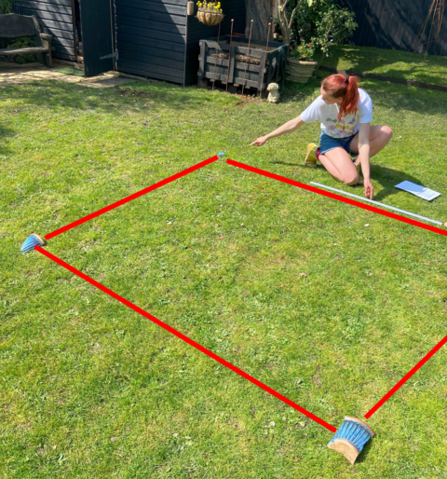Pollinators like bees, butterflies, and other insects are vital to our ecosystem, playing a crucial role in the reproduction of flowering plants and supporting global food production. However, these essential insects are facing challenges due to habitat loss and degradation. This habitat loss reduces the availability of the flowering plants that pollinators rely on for food.
Volunteers needed for citizen science research study

Morgan Morrison, a PhD student at Royal Holloway, is trying address these issues, all from the comfort of your gardens. Her work is exploring alternative mowing strategies that may help your garden become a more pollinator-friendly space.
This research is looking into what is the 'best' way to mow garden lawns to encourage the growth and flowering of plants that are beneficial to pollinators. By allowing certain areas to remain uncut for extended periods, the hope it to create diverse habitats that support a wide range of pollinator species throughout their life cycles. The benefits of using mowing to help pollinators include the low cost and hands-off approach, which can be implemented by anyone with a lawn.
To understand what the optimal mowing regime is for pollinator communities, Morgan is running a citizen science project - Optimow. This student has members of the public follow a specific mowing regime in their gardens. Participants then complete weekly counts the of pollinators in their lawn. Every garden and every participant feeds into important information to understand the best mowing for pollinators.
The first year of the study was 2023 and Optimow had an amazing 180 participants and saw some really interesting results in one of the groups!! The team at Royal Holloway hope to build on this work with a repeat of the study in 2024, so they have robust advice to give members of the public about managing their lawns to help pollinators.
Morgan and her team are looking for volunteers to participate in the study. In the project, you will be counting the flower-visiting-insects within your garden (just 15 - 25 minutes a week) whilst following a specified mowing frequency. By joining our project, you will be contributing to real-world scientific research and providing evidence for pollinator conservation. This will help our understanding of insects in your garden and help save them.
If you are interested you can sign up and find out more details below.




